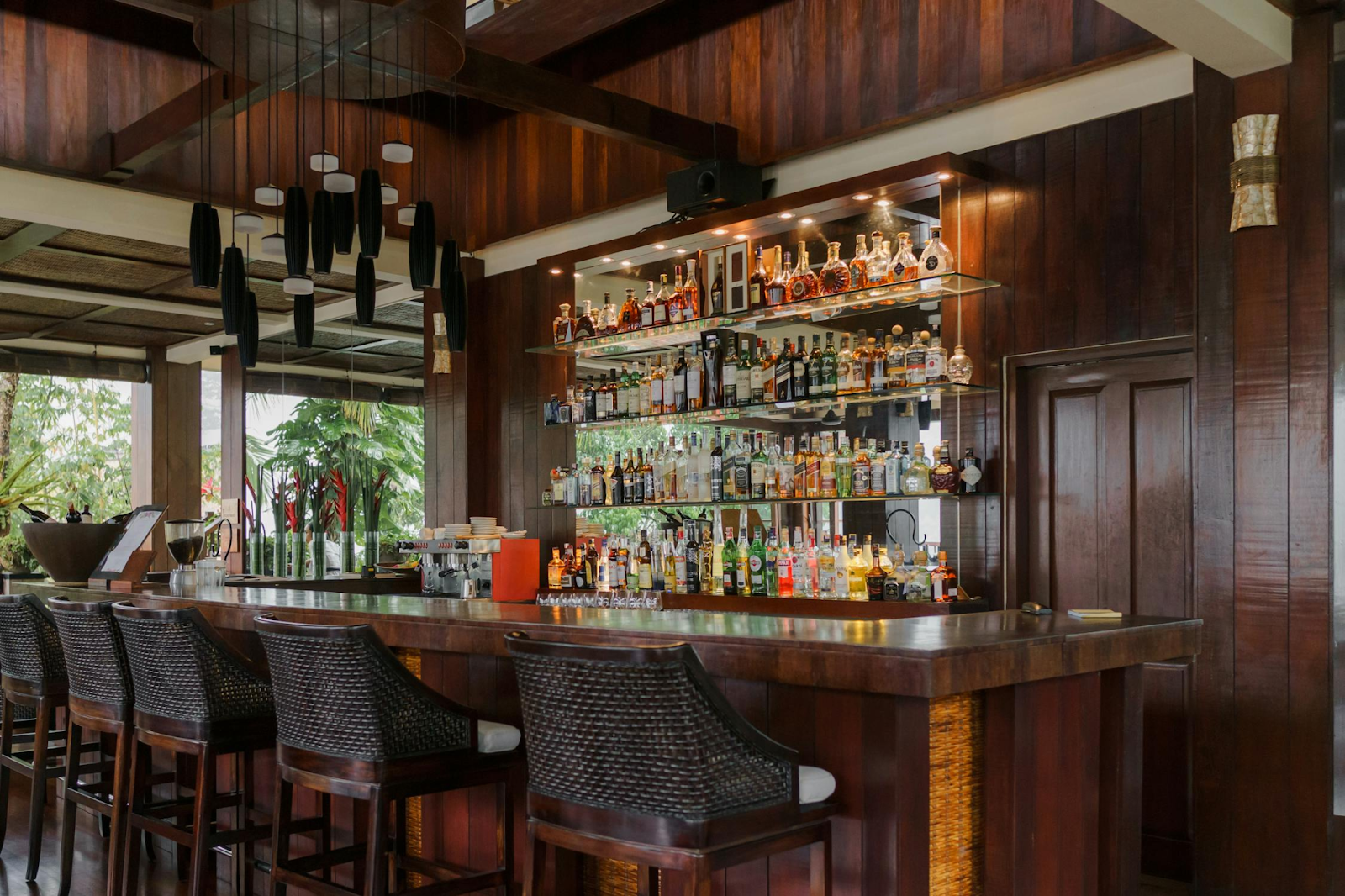News:
Start-Up Costs for Restaurants and Commissary Kitchens
A commercial kitchen is at the top of the list of investments when starting a food business. Can we forego this initial outlay and channel the monies elsewhere? Find out.

Understanding Start-Up Costs
Entrepreneurs must think hard about start-up costs as they will make or break the business. Whether planning a nice and cosy restaurant or a commissary kitchen, you will need to break down the costs and understand them, prioritize what needs to go first, and cut what can wait. When it comes to the food business, your culinary skills and knowledge may not save you if you lack the crucial understanding of costing.
So, how do you know what will matter for your food startup?
First, Research: Understand your market, ingredients and their source, and equipment needed. This is your base.
Then, Plan: This will involve setting budgets, forecasting expenses, and outlining financial goals. Think of it as your road map.
Permits and Licenses are never that far off: You cannot wish these away for any business, least of all the food industry. You’ll need to understand what's needed in your state.
Get the Equipment now: High-quality kitchen gear determines your business’ efficiency and food quality.
Location: Associated costs include rent and leases. You want to ensure these are well within your budget.
Staffing: The right team will get the right job done,
Marketing: You cannot sleep on branding and marketing, as these are the surest ways of getting the word out.
Before taking the plunge, you want to take the time to prepare and research. Everything works so much better when you have a clear road map.
Traditional Restaurant Start-Up Costs
Let’s break down some of the costs involving a traditional restaurant.
- Location - You will, naturally, need the space to bring up your establishment, and typically, this takes the lion’s share, whether leasing or buying.
- Interior Design and/or Renovations: Transforming a space into a welcoming dining area is often a hefty investment. Think decor, furniture, and any necessary structural changes.
- Kitchen Equipment: Food prep requires top-range ovens, refrigerators, and even the smaller utensils needed to meet the standards expected of a modern kitchen. Luckily, PREP has alternatives to brick-and-mortar settings that you should check out if you are in the food business.
- Staff Hiring: The payroll for your staff, training for chefs, waitstaff, and management will all go into the list.
- Inventory: You'll need ingredients and beverages before opening, and here’s where you'll start thinking of consistent suppliers.
There are always other hidden costs, such as:
- Insurance: The food business is risky, exposing you to potential liabilities and damages.
- Permits and Licenses: No legal business will operate without these recurring costs and fees.
- Marketing Expenses: You will be promoting your restaurant to attract customers, so social media marketing, traditional advertising, and branding efforts will need consideration.
Evert responsible business person needs to be aware of these costs from the jump so they don't sneak up on them and cripple business.
A Different Route: Commissary Kitchen Start-Up Costs
A commissary kitchen offers relief to business owners by shouldering some of the concerns associated with the traditional setup. Here are the costs linked to commissary kitchens.
Membership Fees: PREP’s shared kitchen membership plan has hourly or daily access, depending on your needs. We have various setups for different food businesses, and you only pay for what you need, meaning you can allocate some of that seed money elsewhere.
Equipment Rentals: Commissary kitchens have state-of-the-art equipment, so you will not need to invest in that commercial kitchen if you're not ready.
Shared Resource Costs: You will be sharing the space with similar businesses, so storage, transport, and some other costs can be split and managed more efficiently.
Here is what we’ve come up with when we compare and contrast start-up costs between traditional restaurant or turnkey commissary and commercial kitchen:
|
Cost Element
|
Commissary Kitchen
|
Traditional Kitchen
|
|
Equipment Investment
|
Low
|
High
|
|
Lease Commitment
|
Flexible
|
Long-term
|
|
Utilities & Maintenance
|
Shared
|
Sole responsibility
|
|
Compliance
|
Simplified
|
Complex
|
|
Scalability
|
High
|
Limited
|
Commissary kitchens offer a streamlined path to launching your food business by providing the infrastructure and support you need without the huge financial burden. This model suits and supports various culinary ventures - not a one-size-fits-all setup - and enables your team to focus on other areas of growth and innovation.
Comparing Traditional and Commissary Costs
Both traditional restaurants and commissary kitchens have their own financial demands, but they differ in various ways, as shown below.
Traditional restaurants usually require a hefty investment, a barrier to entry. You will need the location, and since a huge chunk of money will go into this - lease or purchase - little is left to cater to the other needs. Renovations are often needed to transform a bundling into a restaurant, and even more will go into equipment. Staff is required to make the business successful, and this budget item takes a reasonable chunk. You still have utilities and maintenance on the initial and ongoing list.
Commissary kitchens like PREP are a little unlike their traditional counterparts. Membership Fees are the first thing that differentiates them, as you get to choose the model that works for you: hourly or daily. Costs such as utilities, sanitation, and maintenance are shared among users, reducing your overhead. You have access to state-of-the-art equipment to use. The most underrated benefit of shared commissary kitchens is simplified compliance, where our team works on permitting and compliance. You will never need to worry about your kitchen meeting the set standards because we handle that. Everything you need to know about our dedicated shared kitchens and the business models we support is available here.
Side-by-side Comparison:
- Initial Investment:
- Traditional: Quite high due to location and equipment.
- Commissary: Low with shared resources.
- Ongoing Expenses:
- Traditional: Sole responsibility for utilities and maintenance.
- Commissary: Shared costs lighten the financial load.
As you can tell from the analysis, commissary kitchens allow for a less burdensome financial entry into the food business. They minimize risk by enabling an entrepreneur to forego initially setting up a commercial kitchen to redirect the funds to other ventures, such as marketing and branding. This happens without compromising food quality because PREP commissary kitchens are equipped with the highest quality.

Financial Aid and Funding Options
Funding sources are crucial, whether you're aiming for a traditional restaurant or a commissary kitchen.
The most common approach is a traditional loan from banks and credit unions for persons or organizations with collateral and a solid business plan. You can also opt for competitive grants that often come with stringent criteria, but no repayment is needed if all terms are met.
Crowdfunding platforms like Kickstarter or Indiegogo have become a popular go-to for startups these days. They allow you to raise money from outsiders who may buy your idea if you have a solid marketing campaign.
Venture capitalists also offer avenues to raise capital for a portion of your business if you can package it to show profitability. You raise capital and get loads of ideas and advice from entrepreneurs who’ve been there and done that.
So, here are your options most often:
- Traditional Loans: Collateral needed.
- Grants: Non-repayable but come with strings attached.
- Crowdfunding: Welcomes future customers to buy into your idea and fund it.
- Venture Capital: Capital and expertise for a portion of your business.
The first step is always understanding the pros and cons of every option and then picking what works best for your business, now and in the long run. PREP’s material on food trucks and the steps required to set one up could help you summarize your financial needs.
Regulatory and Compliance Costs
The food business is heavy on compliance, which, if not followed, results in fines and penalties. These are the typical fees and costs for a food business:
- Permits and Licenses: These range from health permits to business licenses and food handler certifications, and the requirements will usually vary by location.
- Health and Safety Regulations cover food storage, preparation practices, and employee hygiene.
- Fire and Building Inspections: Your facility must pass fire safety checks and meet building codes.
- Zoning Permits: Zoning shows where you are allowed to operate legally.
- Environmental Regulations: How do you plan to manage waste, and what are your recycling practices?
PREP commissary kitchens simplify processes by handling most of these regulatory processes. You get permit-ready kitchens to work in, and the organization handles regular check-ins with the licensing authorities.
Innovative Approaches to Start-Up Costs
These days, consumers are more concerned with food quality than the setup. Pop-up restaurants, food trucks, and virtual kitchens are now embraced if they bring the flavours foodies want. They are cost-effective and could get you started if you're low on capital.
Pop-Up Restaurants are temporary dining spaces that test new markets without long-term commitments.
Food Trucks are great for mobility and have a lower overhead than traditional restaurants. PREP has comprehensive food truck kitchens that require less staff and avoid high leasing costs.
Virtual Kitchens: Just order online and get your delivery, as long as the restaurant is within your location.
These models offer flexibility and scalability and allow budding food entrepreneurs to enter the industry with less capital. Innovators can experiment with menus and concepts, adapting quickly to consumer demand.
Though these models are great, they are not without challenges. Pop-ups require permits and could be limited to location, while food trucks will need regular maintenance as they are exposed to the elements. A virtual kitchen relies heavily on online marketing and delivery logistics.
That said, these challenges can be overcome, and using commissary kitchens allows you to channel your capital to marketing and logistics. The strain will be less than what you get with a traditional restaurant.
The Role of Technology in Cost Management
Technology shapes how food businesses handle start-up costs. If used optimally, tech lowers costs and makes a food business more efficient.
Operational Tools: There are several software solutions to streamline ordering and inventory management. POS systems track sales and inventory and help entrepreneurs know when to reorder supplies after monitoring performance for a while.
Efficiency Boosters: Automation tools take on some manual labor, like staff scheduling and payroll systems. They save cost and time and are more efficient.
Marketing Platforms: Social media is now the most effective marketing tool as the masses move from traditional marketing. PREP’s tips on maximizing social media to your benefit could be the game changer your food business needs.
Customer Engagement: Online reservation and delivery platforms allow entrepreneurs to interact with their customers for a more personal touch. They also give feedback for better service.
Data Analytics: Tools that help you understand customer preferences and behaviour in a data-driven manner make it possible for businesses to tailor their offerings.
Every entrepreneur should understand the need to embrace these and more technologies to cut costs and run more efficiently.
Adapting to Consumer Preferences
The service industry relies heavily on customer satisfaction, so knowing what your people prefer will shape your food business. Market research is vital, as knowing what your target audience wants helps refine offerings. It also saves you some cost as you steer in the direction the consumer wants you, not necessarily where you would have planned.
Consumers can lead you to change the direction of your business, and as an entrepreneur, you’ll need to know when to give in. For instance, you may note a shift in orders where a huge chunk of your customers order vegan dishes continually. This could require that you reduce the budget on meat dishes, if the orders have significantly reduced and place more effort on the vegan menu. This way, you respect consumer preference while cutting costs and increasing revenue.
Sustainability and Cost Efficiency
As the talk on climate change intensifies, sustainability and cost efficiency are in many people's minds, so it helps to adopt changes that look into these two. Using energy-efficient appliances reduces utility bills and lessens the environmental impact—double win.
Reducing food waste is yet another critical area. Food businesses could do a lot to reduce waste, such as composting kitchen scraps or donating surplus food. You score goodwill from the local community while also minimizing waste disposal costs. Low-flow faucets are aesthetically pleasing and great for water conservation. PREP membership includes sanitation, recycling, and composting services in its plans, so you will have fewer things to worry about when you join us.
Sustainability isn't just a trend but a valuable strategy for cost management and customer engagement. It aligns operational efficiencies with environmental responsibility, benefiting the business and the planet.
The Impact of Economic Factors
Economic factors play a significant role in shaping start-up costs for food businesses. Inflation drives up prices for supplies, ingredients, and equipment, making an already tough business even more challenging for some entrepreneurs.
Wage dynamics cannot be ignored because higher inflation increases wages to counter the ensuing higher cost of living. This increase affects your overall financial plan. It’s important to allocate funds strategically to ensure you can attract and retain talent without overspending.
Market conditions present an opportunity to choose when to act. A booming economy is good for business, but it could also raise the demand and cost of real estate. While bad for business, a subdued economy is ideal for negotiating leases. Understanding market trends helps in making informed decisions about timing and investment. Shared kitchens could be a reprieve in situations where shared facilities reduce your budget so you can focus on growth and food.
Here are some strategies to mitigate economic risks:
- Monitor Inflation: Keep an eye on inflation and adjust your budget accordingly.
- Flexible Budgeting: Build a budget that accommodates changing economic conditions.
- Cost-Efficiency: Operational efficiency will reduce unnecessary spending.
- Diversified Revenue Streams
- Negotiation: Understanding economic trends will help you negotiate to your advantage.

Marketing Strategies on a Budget
Marketing shines light and breathes new life into a business, and you don't need too much to make an impact. Here are cost-effective strategies for marketing.
Social Media: Create engaging reels for Instagram and videos for TikTok to reach your target audience. Users enjoy behind-the-scenes photos, cooking tips, and customer stories as they tell an authentic story, which will be handy to incorporate. Our Prep Kitchens Blog has marketing insights for food businesses.
Influencer Partnerships: Collaborating with local food bloggers or influencers is a great way to target new followers for your social pages while driving traffic to your establishment.
Community Engagement: Buy from the local farmers' markets and attend local events. Being an active member of the community could pay back handsomely.
Other cost-effective strategies that still work include:
- User-Generated Content: Make offers to customers when they share their food photos, videos, or experiences while at your eatery with their followers.
- Email Marketing: Customers could use some updates about new menu items, events, or promotions.
- Collaborations: Collaborate with local businesses for joint promotions to expand your reach to new customer bases.
These strategies may take time and effort, but they will help you build an authentic following that could convert into a customer base. Of course, keeping the quality of your food consistently high will do you a lot of good.
Planning for Growth and Resilience
Growing a food business takes thoughtful planning, including building flexible business models and diverse revenue streams. A great business model adapts to change and does not have to cost an arm and a leg. A food truck or pop-up restaurant powered by PREP is one of those models that won’t need too much initial capital outlay but could transform into big business over time. PREP’s mobile food trucks are designed for this business and can be customized to suit a customer’s preferences.
Regarding revenue diversity, you can go beyond in-house service to include catering services or even sell packaged products online to cater to a broader market. Innovation is crucial. Invest in technology to streamline operations, such as software for inventory management and sales tracking. Efficient systems reduce waste and improve margins.
Here is a recap on how to plan for growth:
- Flexible Models: The ideal business model adapts to change.
- Diversify Income: Exploring many income sources will stabilize your venture.
- Invest in Tech: Let technology enhance efficiency and reduce tour operating costs.
- Network and Learn: Connect with other entrepreneurs for insights and support.
- Monitor Expenses: Keep a close eye on costs to maintain financial health.
Conclusion
Every food business entrepreneur needs to understand the start-up costs required, whether going the traditional way or choosing a commissary kitchen. Traditional restaurants demand high initial investments such as leasing a location, setting up a commercial kitchen, and hiring staff. Other monthly costs will include utilities and maintenance, and they, too, need proper budgeting and planning.
Commissary kitchens are usually the flexible alternative because, with membership fees and shared costs, entrepreneurs do not need to focus heavily on equipment and even mortgages if they choose food trucks. Commissaries simplify operations with ready-to-use facilities and streamlined compliance and are ideal for start-ups that want to spend more on innovation and growth.
Funding options are diverse, from traditional loans to grants, crowdfunding, or even venture capital, but each has challenges. There will be permits and fees to consider, but PREP’s model helps with some of that. Overall, starting a food business is taxing and will require proper prior planning, and budding entrepreneurs could use as much help as possible. PREP has its commissary kitchens for various food businesses, so check us out to see how our offerings could help your business.


